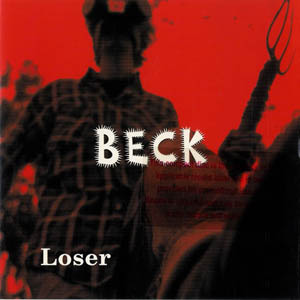About the Song:
“Loser” was originally released in March 1993 by independent record label Bong Load Custom Records as Beck’s second single. The song garnered play on modern rock stations, leading to a major record deal with DGC Records, a subsidiary of Geffen Records. The song was rereleased and made the top 10 of the Billboard Hot 100 in April 1994. It went to #1 in Norway and was a top 10 hit in Australia, Austria, Canada, Iceland, New Zealand, and Sweden.
At 18, Beck moved from Los Angeles to New York City where he lived as a homeless musician in the late 1980s and early 1990s. He returned to L.A. in 1991 and worked low-wage jobs while performing at local coffee houses and clubs. As he said, “I knew my folk music would take off if I put hip-hop beats behind it.” WK To keep audiences’ attention, he would, as he said, “make up these ridiculous songs just to see if people were listening. ‘Loser’ was an extension of that.” WK
After being signed to Bong Load, Beck worked with Carl Stephenson, a record producer for Rap-A-Lot Records. Stephenson wasn’t impressed with Beck’s rapping, but looped a guitar part from one of Beck’s songs, added a drum track, his own sitar, and other samples to craft the musical bed for “Loser.” Beck wrote and improvised disjointed lyrics, but said the song’s roots stemmed to the late ‘80s. When listening to his efforts, Beck thought, “Man, I’m the worst rapper in the world; I’m just a loser.” WK The sentiment became the premise of the song.
The song has been viewed as a parody of the slacker culture of Generation X and associated with the “self-deprecating, anti-corporate” SF nature of the grunge scene, although Beck didn’t associate with that movement. SF The New York Times’ Jon Pareles compared Beck’s “offhand vocal tone and free-associative lyrics” to “Bob Dylan talk-singing.” WK All Music Guide’s Stephen Thomas Erlewine referred to the song as “stoner rap,” but The Boston Globe’s James Reed called it “an alternative rock anthem.” WK The song topped the Village Voice critics’ poll in 1994.
Resources:
Related Links:

First posted 2/27/2021; last updated 7/13/2023.
|









No comments:
Post a Comment